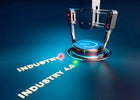

As the years pass, the number of Internet of Things (IoT)-enabled devices in a typical industrial setup is increasing. This is to be expected given the level of attention IoT has attracted in recent years. Many industries have undergone notable transformations thanks to IoT.
For many organizations using industrial automation solutions, the role of intelligent industrial devices is critical as it impacts overall profitability. With the industrial automation arena markedly different than it was a decade ago, this post highlights some of the smart devices you can use to improve your operations.
How IoT fits into industrial automation solutions?
This is an understandable question for anyone considering investing in IoT devices for industrial automation. Well, IoT in the industrial context is an interesting phenomenon where IoT-enabled devices connect to the Internet. Interconnection with industrial machines is a great enabler of industrial automation.
Today the gap between automation and IoT is slowly narrowing because the interrelationship between the two elements is only strengthening. Think of all the industrial devices that share information about their state: motion controllers, sensors, actuators, and many others. These devices are also accessible remotely and can be controlled from anywhere.
The connection between industrial automation solutions and IoT-enabled devices is based on four principles:
-
-
Connectivity – IoT in industrial automation is based on the connectivity of its devices to machines or industrial systems. Connectivity can be wired or wireless. Narrowband IoT, Z-Wave, Bluetooth, and low-power wide area networks are all examples of connectivity.
-
Interoperability – When different IoT-enabled devices, systems and applications can exchange and interpret data, they are said to have good interoperability.
-
Edge computing – This is the principle that brings different data functions closer to sources and users. With edge computing, industries can improve their performance because they are more independent and flexible.
-
Real-time data collection: IoT devices are capable of collecting and transmitting data in real time. This capability is transforming industrial automation through early problem identification and resolution.
-
In short, the fusion of intelligent industrial devices with industrial automation results in improved operational efficiency, data-driven decisions and world-class predictive maintenance.
Various IoT-enabled devices for industrial automation
Many devices have emerged in the pursuit of IoT integration for industrial automation. A look at the different industries that use the technology demonstrates the scope and potential of this connection. Here are some IoT-enabled devices you can spot in the sectors:
PLC (Programmable Logic Controllers)
In the automotive industry, PLCs (programmable logic controllers) are now IoT-enabled so they can seamlessly synchronize with smart sensors in production lines. Thanks to this ability, automotive manufacturers can undertake adaptive production that adapts to different models.
At a company like Tesla, IoT-enabled devices are present both on production lines and in cars. The triple front-facing camera, short- and long-range radar, ultrasonic sensors, and autopilot driver assistance are all IoT-enabled. You will find the same type of PLC in beverage and food manufacturing plants where they improve the precision of process controls.
Actuators and sensors
Manufacturers are widely using IoT-enabled devices to not only minimize waste but also promote repeatability. A good example is sensors used to collect data for real-time monitoring of processes. There are all types of sensors, including vibration sensors, water quality sensors, and noise level sensors.
Chemical processing plants have intelligent actuators that control different valves. Sensor data is useful for ensuring precise valve adjustments that optimize system conditions.
IoT devices for condition monitoring
Petrochemical factories and mines where heavy machinery is common need condition monitoring devices, primarily for predictive maintenance. For example, heavy machinery is equipped with monitoring devices that send timely data to the management team to determine the condition of the equipment.
In petrochemical plants, IoT-based sensors provide condition monitoring capabilities that help keep operations as continuous as possible. By reducing unexpected downtime, factories can make more profits.
Remote monitoring devices
Some industrial operations require remote monitoring for performance and safety optimization. Let's take an example from the oil and gas industry, where losses can be disastrous. With IoT-based monitoring devices in action, plants can operate optimally. Leaks are detected early and any decline in equipment performance is noticed as soon as it occurs.
For those carrying out water treatment activities, IoT-enabled sensors are useful for monitoring and collecting data on important parameters such as pressure, chemical content and temperature. These sensors often have customization capabilities to allow water to be used in different scenarios.
The benefits and future of IoT-enabled devices in industrial automation
IoT devices are transformative in industrial automation through enhanced safety and IoT devices are transforming industrial automation through enhanced safety and productivity. Factories that have embraced the power of the Industrial Internet of Things (IIoT) are smarter and more competitive.
This is mainly because by having access to a large pool of data, industries can make informed decisions regarding plant performance, customer preferences, and so on.
Additionally, companies can be proactive in improving product quality for optimal customer satisfaction. Advanced devices provide critical data that could impact product quality.
Although today's IIoT is already having a significant impact on businesses, there is room for an even better experience in the future. Consider related technologies such as blockchain, edge computing, and artificial intelligence (AI), which have yet to be fully integrated.
In conclusion
The impact of intelligent industrial devices on industrial automation solutions is significant, as can be seen from their relative advantages. Industries that have adopted technological options report improved responsiveness and process efficiency.
Overall, IoT integration for manufacturing and other industrial processes offers a completely new perspective, characterized by excellent predictive maintenance, increased safety and other related benefits. Are you at a stage where you want IoT-enabled devices to revolutionize your industrial automation?We are excited to be at the forefront of enabling the use of IoT-enabled devices in your industrial automation.
We have countless advanced products designed for industrial precision and reliability. Improve your operations using our range of products, which include relay sockets, PLC communication modules and frequency converters.
Call us today for more information.
